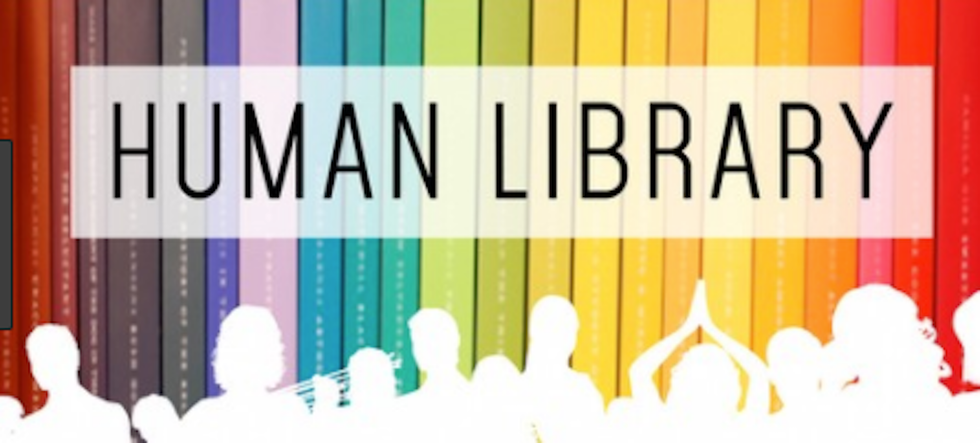The Human Library originated in the spring of 2000 in Copenhagen, Denmark where the project was displayed at the Roskilde Festival as part of a youth movement called "Stop The Violence". After their friend was attacked and brutally stabbed, brothers: Ronni and Dany Abergel, and colleagues: Asma Mouna and Christoffer Erichson began the movement. Their project was met with immediate groundbreaking success. Intended to address prejudice and challenge stereotypes, the original project featured over fifty living 'books'.
With over 30,000 members today, The Human Library Organization continues to host events in over 70 countries in order to allow the public to engage in invaluable conversations with individuals who have first-handedly experienced controversial issues such as: ethnicity, sexual orientation, abortion, feminism, divorce, single parenthood, eating disorders, mental disorders, unemployment, and homelessness. Beyond these topics, others may choose to share their stories on being a veteran, teacher, policeman, lawyer, politician, historian, scientist, environmentalist, activist, monk, etc.
Erik Pontoppidan of the Copenhagen Metropolitan Police Department stated that "In all my years in the police, I have never experienced anything this powerful." One can only imagine the wisdom and benefits of attending such a moving event.
To have the opportunity to check out a war veteran as an anti-war activist or a feminist as an anti-feminist, would undoubtedly alter the realm in which we carry our stereotypes. It is one thing to read a book, but it is another to have it's author sitting across the table willing to answer any question from the perspective of someone who's life lead them to share the story of their experiences in the precise area we hold prejudice.
Imagine what a significant difference of a number of permanent Human Libraries would hold in terms of our political beliefs. Would our opinions change if we had the opportunity to avoid framing our beliefs through polarization—peer pressure and our upbringings? Would checking out living books help us to sympathize and soften our views by embracing the experiences of others? Perhaps children would have greater motivation to visit the library than their local video game store. Maybe, our young leaders would have the opportunity to hear advice and develop their ethics from 'books' that might one day become their local mentors. Perhaps this is one of the greatest changes our country could make in hopes for an improved society.
For more information visit: http://humanlibrary.org/



















